‘Solastalgia’: Fragments of a fading horizon
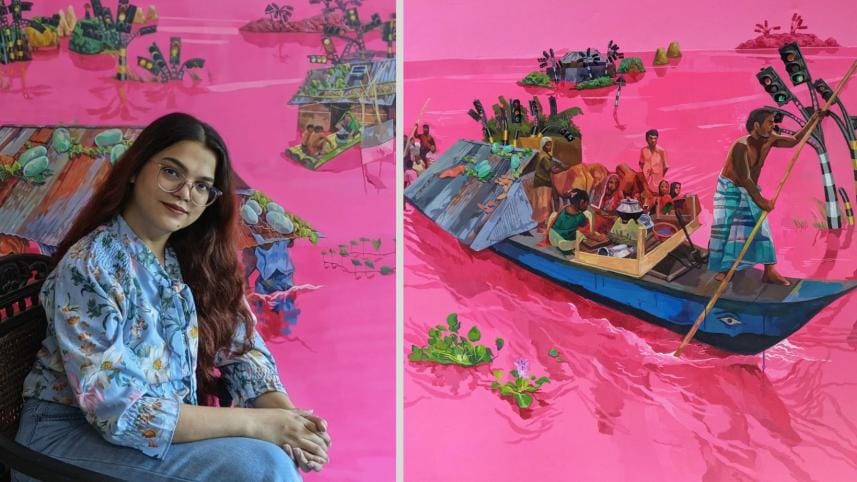
Artist Auntora Mehrukh Azad's solo exhibition, "Solastalgia: Fragments of a Fading Horizon," delves into the personal and universal experiences of environmental change, whose deep connection to Bangladesh's rivers and landscapes represents her work.
Azad's art explores the impact of climate-induced flooding and the tension between rural and urban environments. From the Sundarbans to Dhaka's dense urban fabric, her works reflect the convergence of these worlds, blending internal emotions with external observations of a landscape reshaped by human activity and environmental crisis.
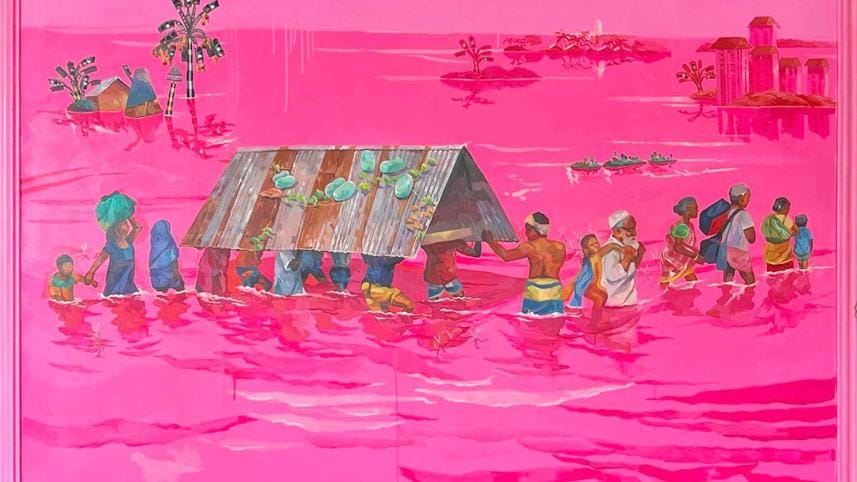
Hosted by Platforms at its gallery in Pragati Sarani, Baridhara, Dhaka, the exhibition will run from October 19 to November 16, 2024, from 11am to 8pm daily, inviting art enthusiasts, collectors, and connoisseurs to explore Azad's evocative works.
Azad's creative impulse knows no bounds when something deeply emotional moves her. Growing up in Dhaka, one of the most climate-vulnerable cities in the world, she's witnessed the powerful relationship between our landscape and water. Bangladesh's geography, shaped by rivers and monsoons, is both a source of life and destruction.
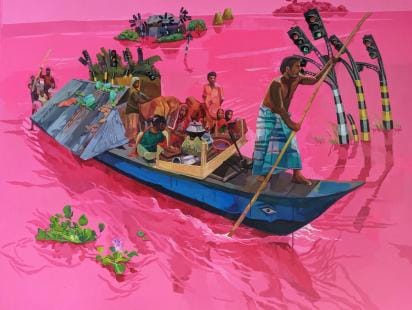
"A pivotal moment came in 2018 when I worked with flood-affected communities in Pakuria," recalled the artist. "Immersed in their lives, I began to see the landscape as one reshaped by human influence and negligence. The neon pink waters in my work represent the unnatural, manmade elements of this crisis, exacerbated by climate change—a global issue that hits the most vulnerable hardest."
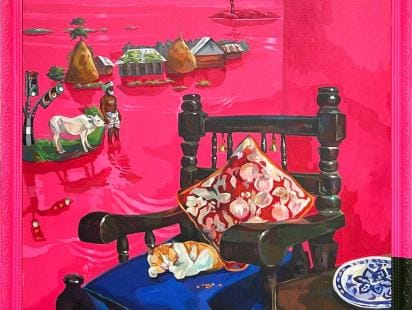
Curated by Rayana Hossain, founder and managing director of ISHO and Platforms, the exhibition presents a visual journey through the fragmented yet interconnected stories of environmental disasters. Rayana notes, "Auntora's works blend internal emotions with external realities, reflecting the convergence of natural and urban worlds. Her imagery of neon waters and floating islands captures the collective experiences of those living on the margins of environmental catastrophe."
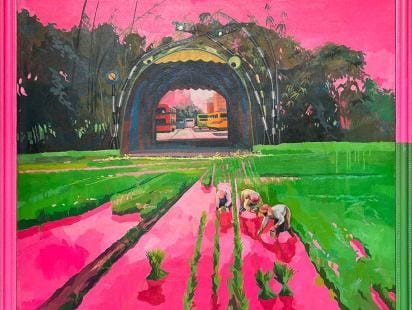
The exhibition has been arranged to showcase the shifting scales of these transitions. It moves from intimate depictions of flood-affected communities to broader, more abstract landscapes, highlighting the internal and external journey of displacement and environmental degradation. Each painting extends beyond the frame, symbolising the magnitude of the crisis—far too vast to be confined to canvas.
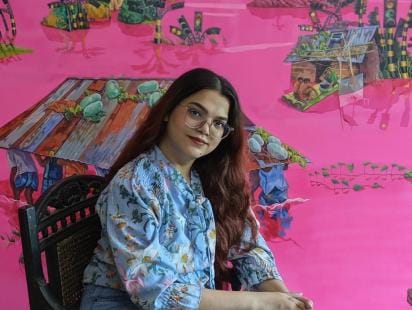
Auntora Mehrukh Azad, a visual artist, explores the evolving relationship between nature and urbanisation. Through an exaggerated, artificial colour palette, her work emphasises the gradual dominance of urbanisation over the natural world. She holds both an MFA and BFA in Drawing and Painting from the Faculty of Fine Art, University of Dhaka, and has exhibited her work internationally, including at the Dhaka Art Summit (2023), Yogyakarta International Art Festival (2019), and Global Women's Art Exhibition in Thailand (2019). Her works are featured in prominent collections, including the Samdani Art Foundation and the Luciano Benetton Collection.
She also participated in the 18th Asian Art Biennial in Bangladesh (2018), the 22nd National Art Exhibition (2017), the Solo International Art Camp 2 in Indonesia, and Immensity, a student art project curated by Bishwajit Goswami at the Abinta Gallery of Fine Arts in Dhaka (2018).
Initiated by Platforms, Azad's work, along with pieces by fellow Bangladeshi artists Fakhrul Islam Mazumder Shakil and Tariqul Islam Herok, will be displayed at the upcoming Tokyo International Art Fair, scheduled for November 29–30.
Zahangir Alom is a curator and director at the International Art Exchange.




 For all latest news, follow The Daily Star's Google News channel.
For all latest news, follow The Daily Star's Google News channel. 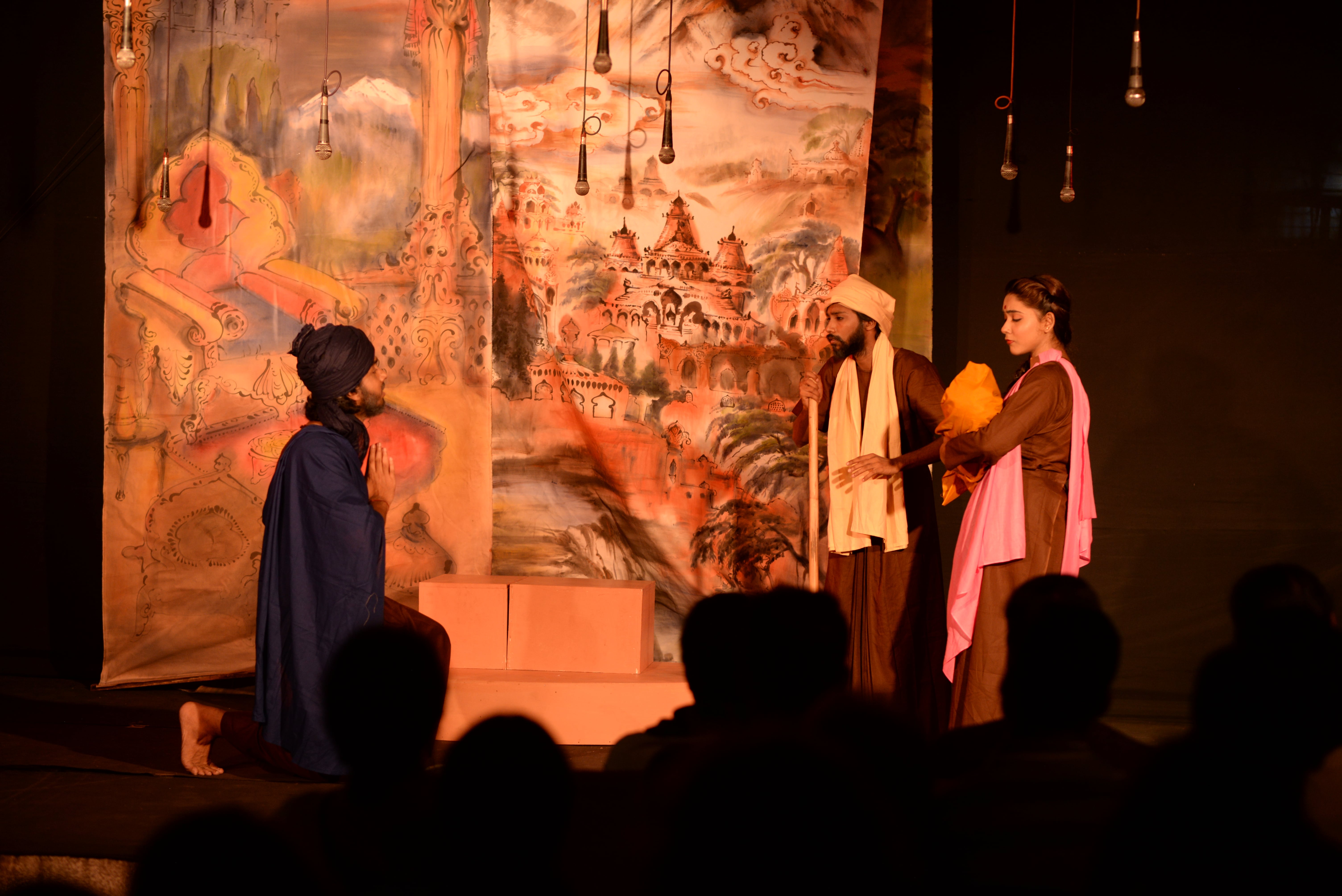
Comments